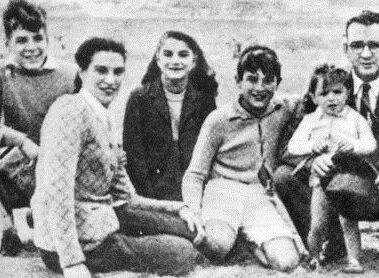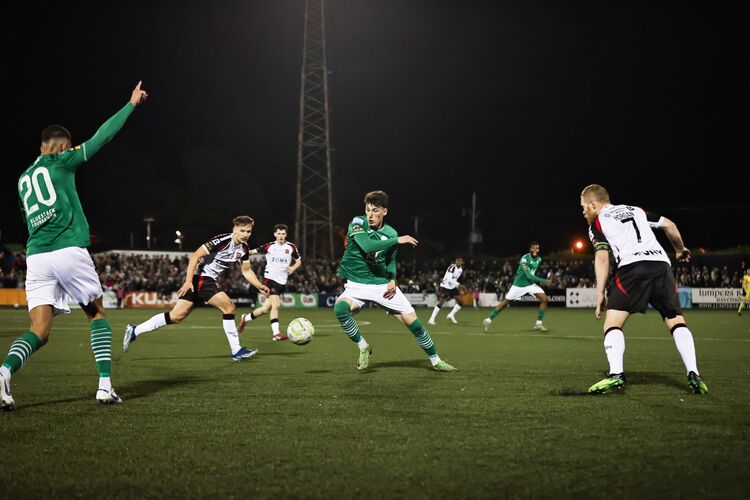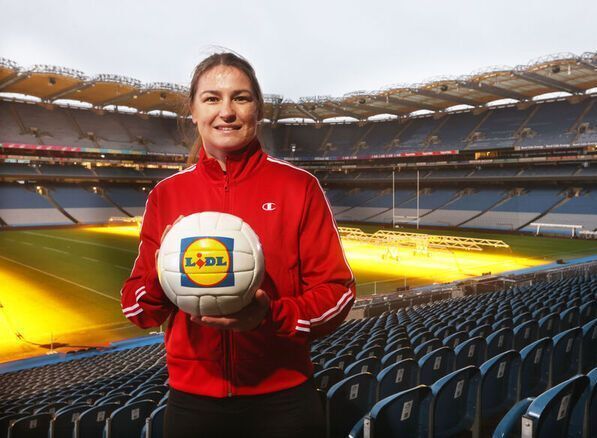Jack Charlton, who died on Friday, with his players during training in Malta ahead of the 1990 FIFA World Cup in Italy. INPHO/BILLY STICKLAND
By P.J. Cunningham
The late, great journalist and Kerryman extraordinaire Con Houlihan once wrote that he missed the 1990 World Cup because he was in Italy.
Thirty years later as I look back on that frenetic summer following Jack Charlton’s Republic of Ireland squad as a reporter, I agree totally with the legendary Evening Press talisman that those of us who were actually at Italia ’90 lost out on the fantastic “esprit de corps” the people at home felt as the Boys in Green -- led so ably by Big Jack, who died Friday in Northumberland, England, at age 85 -- went on a tremendous voyage of discovery during that tournament.
In all, I was out of Ireland for close on five weeks covering the build-up to and the actual games themselves in the World Cup. The only glimpses of how the exploits of Packie, Paul McGrath and Niall Quinn, etc. had “captured the nation” came in phone calls home to my wife – previously not a sporting fan. In one conversation, she explained that her work was having an ‘Italia ’90” night out to get in the mood for the England game. They were having all the fun at home while we hopped from Dublin to Malta (build up) to Cagliari, Sicily, Genoa and finally Rome during that June and early July period.
Let’s not forget that this was the era when newspapers and landline phones were kings – there were virtually no mobile phones (weighting less than a ton that is) and social media was another decade down the line. So as journalists we were bringing much of the press conferences and interviews fresh to the Irish public at home. It was a golden era for sales of the Indo, Irish Press, Times and Examiner, as well as the Star and other “red tops.” Editors couldn’t get enough of a good thing.
[caption id="attachment_108706" align="alignnone" width="256"]
I was oscillating my reports for the Evening Herald with work for the Indo where my job was to ghost-write Kevin Moran’s column.
This was easier said than done because for the first match against England the kick-off was late and it meant that in an Irish time situation, the match was over close to the newspaper deadline for the next day.
Kevin was and is a lovely, ordinary guy with no airs and graces – but for me to interview him, call it over to a copy taker (no digital transfer via laptops at that time) and get it on the pages, I would have had to be running alongside him on the pitch for the second half.
I had spoken in advance to him about this problem and asked him if we could go through a few different scenarios – if Ireland lost, if they won or if it was a draw. Luckily we did that.
When England grabbed the lead early on through Gary Lineker and looked in control, I began writing the Moran column from a somber point of view in the press box.
Then when Kevin Sheedy capitalized on a Steve McMahon slip on the edge of their box to strike home a wonderful equalizer, I had to tear up what I’d ghosted for Kevin and begin a new column. Just reading it again it came across okay but much of it had to be dictated down the phone off the top of my head.
The reason for that was when I had finished what I’d written, the sports editor came on the phone and said: “Great stuff, give us as much again as the readers can’t get enough of Moran and the others. There’s a real sense of nationhood that’s building on Germany ’88.”
That was another clear signal that while the matches might be taking place on Italian soil, all the fun and games (and sheer enjoyment) was being had across Ireland.
[caption id="attachment_108708" align="alignnone" width="300"]
In truth, though, we were also sailing with our exiled version of the Green Tide in Italy as well. The plane journey from Sardinia to Palermo, the Sicilian capital, was one of great anticipation as next up were the Egyptians. We felt confident of victory and with the moral victory against England, it felt like we were already emerging from the group stages.
And there were more than World Cup stories as the Mafia struck while we were in Sicily and we reported on the off-field activity as if we were re-reading Mario Puzo’s “The Godfather” pages.
As journalists, we didn’t know it then but the game against Egypt was to provide us with the most compulsive sports controversy of that time - the Dunphy vs Charlton row.
Yes, Ireland were dire in that 0-0 game and yes Dunphy throwing of pen in disgust in the RTE studio had made negative headlines before the footballer-turned-journalist and TV pundit arrived in Palermo for our final group game against Ruud Gullit’s Holland.
While Jack, a World Cup winner as an England player in 1966, seldom if ever read the papers himself, he was kept abreast about what was happening at home and how the likes of his former Leeds United teammate Johnny Giles and Eamon Dunphy were describing the sort of football Ireland was playing.
He knew about the pen-throwing incident and when Dunphy asked a question at the live press conference after morning training on his first full day in Italy, it was a powder keg moment.
Jack refused to answer and instead stormed out of the conference… Italy ’90 was about to deliver the biggest moment in soccer history – until Saipan ’02 came along with Keane and McCarthy.
[caption id="attachment_108707" align="alignnone" width="300"]
INPHO/BILLY STICKLAND[/caption]
Evening newspapers had a 10.45 a.m. deadline in those days and this was manna from heaven for both my colleague Philip Quinn and myself, who were the Herald’s front and back page men on the beat. That day it was front-page only. I rang the editor, luckily got him in his office and told him what had just happened on a landline that a lady in a nearby office in the stadium had allowed me to use. He told me he’d delay the deadline and wanted us to give it all we had. For the following half-hour one of us would dictate on the phone while the other was out interviewing fellow journalists, players, FAI officials and anyone that moved and could talk English in the vicinity.
We got the scoop of a sporting lifetime as our rivals had been told they missed their first edition and would not be able to get their stories on until the lunch-time edition a few hours down the line.
That meant they missed their country edition that went to Kerry, Galway, Donegal, Louth, Wexford and all the extremity areas while the Herald sold out in these places.
Italia ’90 was the tournament that kept on giving…the country was on Jack’s side but there was another twist in the tale. Three of the four teams in our group – Group-a della Morta (The group of Death) – would advance to the next round that time. So when Holland and ourselves were level at 1-1 with Niall Quinn getting our equalizer, the players on both sides knew that with England, they would go through once they kept the scoreline that way.
Thereafter we witnessed the tamest final 10 minutes ever seen in a so-called competitive game until the ref’s final whistle.
So with no wins, two goals and a contrived draw in our third game, we were heading for Genoa to face Gheorghi Hagi and Co. from Romania in the knockout stages.
Another voyage of adventure up north by which times players and press (except for the Dunphy followers) had developed a very close bond. This was tightened as we reached the zenith of excitement in the Stadio Luigi Ferraris (Sampdoria’s home ground) when after extra time had produced no goals, we won a dramatic penalty shoot out thanks to Packie Bonner’s save against Timoftei and Dave O’Leary’s final kick which catapulted us into the quarter-finals and a Saturday night meeting with the host country in Rome’s Olympic Stadium.
[caption id="attachment_108710" align="alignnone" width="300"]
INPHO/BILLY STICKLAND[/caption]
What joy! What rapture. Half the country was trying to fly into the Italian capital for the game while the hard-headed football journalist reckoned that we had gone about as far as we could go.
[caption id="attachment_108709" align="alignnone" width="300"]
[/caption]
The five days in Rome flew, swimming in the Olympic pool, a trip to the Vatican to meet the Pope John Paul 11, himself a former soccer player and always the most striking thing was the esteem in which the Irish fans were held by Romans. Whereas England fans had let themselves down with hooliganism and aggression, the Italians just loved the smiling Irish who only wanted to sing, drink and have the craic.
Even in defeat, we had a night of nights to celebrate the great journey which was ended by Toto Schillaci’s first-half goal. In fairness, we created little or nothing and were satisfied to leave such a global stage with applause ringing in our ears for what we had brought to the tournament.
There was one big surprise left for the Irish entourage, who like Con Houlihan, had been largely cocooned away from what was happening back in Ireland.

Paul McGrath of Ireland and Italy’s Salvatore Schillaci during the World Cup quarterfinal game in Rome.
INPHO/BILLY STICKLAND
Half a million people descended on Dublin Airport to welcome home “King Jack” and his Green Army. It took hours for the bus to make the short journey to O’Connell Street as every inch of the roads and streets were lined with fans carrying tricolors and waving and smiling.
I eventually got home at midnight, four hours after touching down totally exhausted after five weeks of non-stop action.
They say that period in time was the foundation of a new national pride and of a corner turn to the modern Ireland. One of my own abiding memories was the number of people I met from the Irish diaspora in Italy who were proudly supporting the land of their forbears. Born mostly to two Irish parents, these sons and daughters were even more Irish when it came to offering support right through that tournament. And rightly so as Houghton, McCarthy, Morris, Hughton, Sheedy and Townsend were all first-generation Irish on the pitch bringing pride and honor to every corners of the globe.
It was truly an unforgettable fire that burnt deep into the Irish psyche home and abroad and I think still burns brightly to this day.








